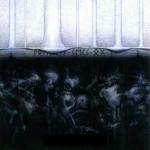The main reason I decided to finish reading it was that I got to like the character Kyle, and wanted to learn more about him. Sadly, he was soon abandoned, except for some perfunctory stabs at resolving his plot-line later in the book. He became a Rosencrantz (or is it Guildenstern?), useful for providing major developments in the motivations of other characters (his magical skills will bring back the Duke of the Guard), but Kyle's own motivations were reduced to secondary and flat and then, ultimately, entirely abandoned with no explanation.
Over all, I got to where I really disliked Esslemont's writing. On the grammatical level, I experienced the "garden path" problem (described in my previous post, above) regularly, as well as other problems in reading. I found the verbal skill of Esslemont to be very poor, even close to inadequate for the task he had set himself. I found several occasions where I simply did not know what the heck he meant by a certain sentence. I have worked in a book-publishing house and, based on that experience, I think I can conclude that Esslemont's typescript was not ever edited in any systematic or careful manner. It was perhaps read through once at best. At our offices, we would have been embarrassed to have produced that many errors, or, more accurately, that many infelicitous constructions. On the more thematic level, I experienced the drop-the-ball phenomenon (as described about Kyle, in the immediately previous paragraph) consistently throughout the book as well (for example, wasn't there a forgotten noble girl escaping on a raft? where did she go? I need a wrap-up please! or at least a hint that the author hasn't FORGOTTEN her, but instead has DELIBERATELY left her location vague; etc.).
I liked some few things, mostly just specific ideas. For example, I enjoyed the concepts of the surf-riders and the guards chained to defending the surf wall against them. The creature Ryllandaras, and the sewer where he was initially imprisoned, were rendered in fascinating manner. We never got adequate description of Ryllandaras, precisely because no human character ever really got a good look at him, since he moves so fast, and this did wonders for making him (it?) seem all the more frightening. I liked the problematic Warren-travel -- each time a group decided to go somewhere by Warren, there was a new issue arising out of some kind of magical problem with the Warren and its inhabitants, so the risks of using that kind of magic were enjoyable to read about. Similarly, I liked the issues with residual Otataral which the mages (rescued from the mines and traveling on the ship) had to cope with. Those sorts of creative world-building specifics were all enjoyable, to me.
And I found Esslemont's descriptions of the common foot-soldier's experiences during battle to be compelling, and his utter refusal to glorify violence (violence itself, as a laudable thing) was quite a strong moral stance for him to take. The sense of the stench and futility of war was well rendered, in a way I find refreshing in this genre, which quite often raises combat arts to a ridiculously sanctified level. In fact, the most perceptive parts of the book, in my experience, were those times when the author pointed out the inevitable duality of any decision made during war, how even the most noble motives can be viewed as corrupt or immoral from a different point of view, how all that slaughter is always a regrettable outcome, how the actual victors are always the slimiest and least noble perpetrators who manage by luck and cruelty to cheat the otherwise rightful heirs out of their otherwise just rewards. This is a position I'd like to agree with, about slaughter and violence; and it's not far from Erikson's position in many ways, as well. That's welcome. But it doesn't make up for the (in my opinion) faulty grammar, abandoned character arcs, and otherwise generally sloppy planning and lack of care.
I give it a very low grade on my personal enjoyment scale. It was too hard to figure out, too often, with too little reward. I would have thrown it away except that I had traveled to a family reunion without anything else to read.
Nevertheless, I thank y'all for contributing to the discussion in this thread, and in some ways I'm "glad" I read it. I set myself the task, chose to undertake it, and then had the fortitude to finish it. I learned a good deal about "bad writing" (of course, by "bad" I mean, "bad, in my personal opinion," naturally) and in a few odd manners I developed greater confidence in my own writing precisely because of my experiences in wading through the Esslemont writing. It wasn't a totally negative experience, just a not-very-good book, to me. Barely enjoyable enough, and certainly not as bad as a poke in the eye or a whack on the head. My eyes aren't bleeding, but I don't relish the challenge of undertaking anything else by Esslemont and I probably won't try.
My next read will be number nine of the Erikson Fallen books, which is (correct me if I'm wrong) Dust of Dreams. I read the summaries (in both of the locations discussed above in this thread) of the other Erikson books that I've finished in the past, though I started getting bored by some of the summaries and therefore didn't take care to read them all at the level of attentiveness they probably deserved. If I start getting lost when I start number nine because I've forgotten something, well, I'll know where to go to double-check on past developments.
This post has been edited by cliftonprince: 08 May 2018 - 03:57 AM

 Help
Help














